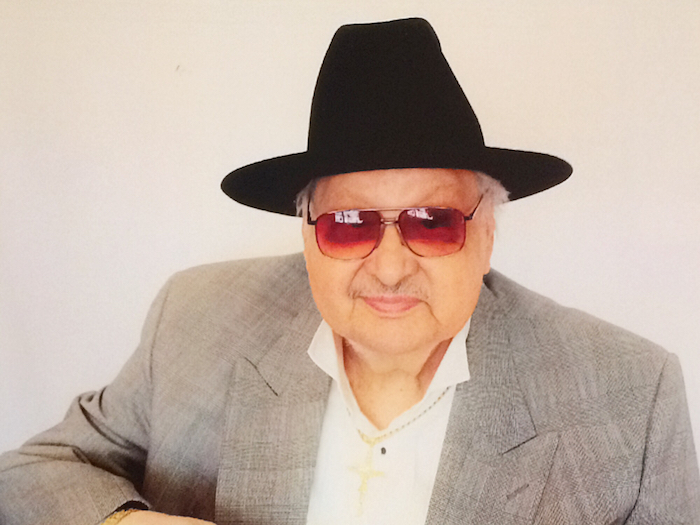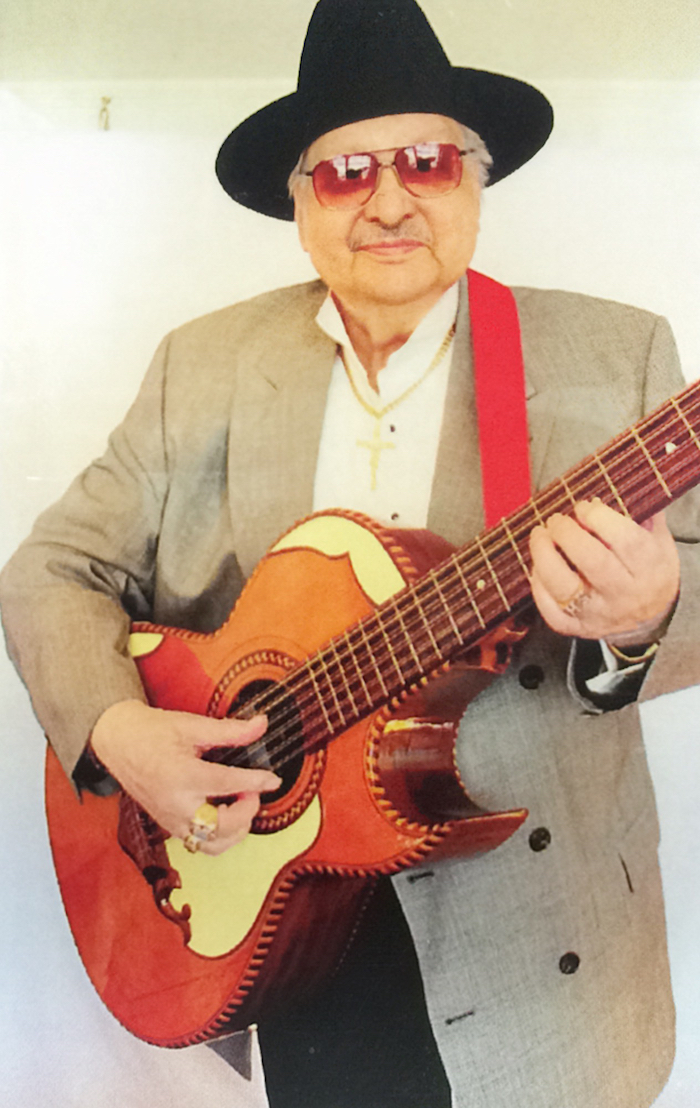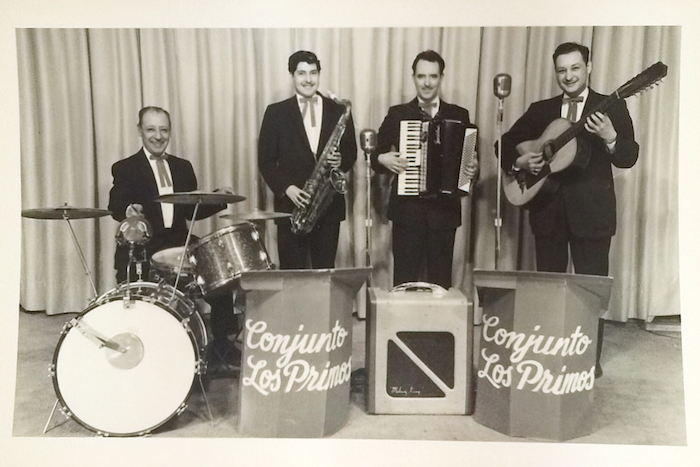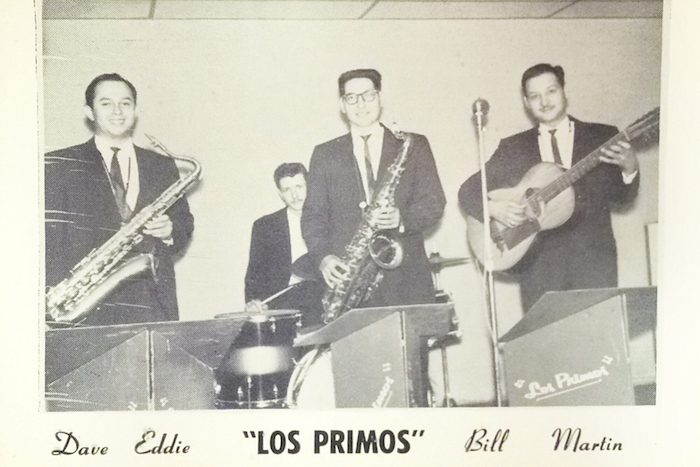Art Form: Conjunto music
Location(s): Melvindale (Wayne County)
Martin Solis, Jr.

Portrait of Martin Solis

Martin Solis holding his bajo sexto

Los Primos, with Martin Solis on the far right

Los Primos, with Martin Solis on the far right
Martin Solis, Jr. (1929-2019) came from a musical family, with a grandfather, grandmother, and uncle who played a variety of instruments. Using a guitar gifted to him by his grandfather, Martin grew interested in Texas-Mexican conjunto music in the 1950s in his birthplace of San Antonio, Texas. In addition to being a pioneer of conjunto music in Michigan, Martin was also an exemplary vocalist and bajo sexto player, a twelve-string bass guitar carried on the body like a guitar and a key part of this music. He was among the first to amplify the bajo sexto, and, while other conjuntos of the 1950s added bass players to their lineups eliminating the need for the bajo player to play the bass line, his band Los Primos’s lineup of accordion, bajo sexto, saxophone, and drums meant that Martin continued to provide the bass line on the bajo. He also had an extensive repertoire, which he learned by listening to the latest hit records coming up from Texas and transcribing them by hand into his own song books. His wife, Anna, estimates that he collected over 1,000 songs in his song books.
Martin’s important role in establishing Texas-Mexican music in Michigan has been recognized in his home state of Texas by the Tejano R.O.O.T.S. Hall of Fame and Museum, and here in Michigan by representatives of the City of Melvindale, Wayne County, and the State of Michigan. Inducted into the Hall of Fame on January, 6th 2018, Martin was unique in that he was the first Michigan-based musician recognized by the Hall of Fame. In recognition of his induction into the Hall of Fame, Melvindale Mayor Stacy L. Bazman declared January 17th, 2018 “Martin Huron Solis, Jr. Day.”
Martin was a fixture of the Metro Detroit Mexican American community, performing not just in bars and at dances, but for family functions including weddings, birthdays, quinceañeras, baptisms, and communions. Between his full-time job at Airborne Freight and performing Friday and Saturday nights and Sunday afternoons nearly every weekend, Martin had little time for other activities, though he remained a member of the Knights of Columbus until his passing. Through the wider recognition he received, he shined a spotlight on the cultural life of Detroit’s Mexican American community.
- Richard Davila and Micah Ling, 2019





